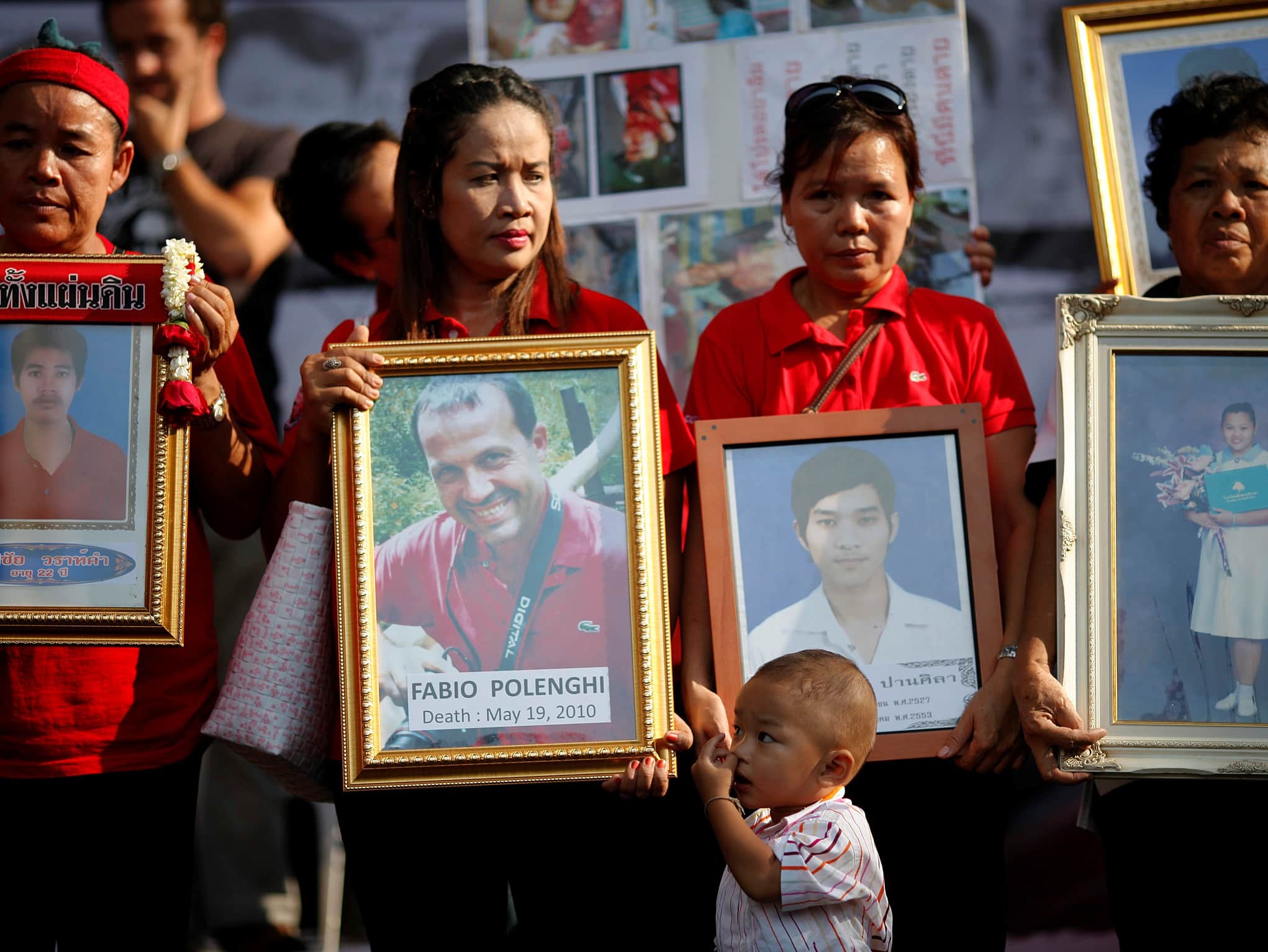Justice must be pursued for Italian photographer Fabio Polenghi, SEAPA stressed, after a Bangkok Court ruled that Thai security forces were responsible his death in 2010 during a crackdown on protesters.
The Southeast Asian Press Alliance (SEAPA) welcomes a Bangkok Criminal Court’s inquest ruling on 29 May 2013 that Thai security forces were responsible for the death of Italian photojournalist Fabio Polenghi, who was shot dead on 19 May 2010 during a Thai security force’s crackdown on red-shirt protesters in Bangkok.
The ruling is precedent-setting in addressing the impunity by the state on violence against media workers, and not only in Thailand.
The ruling is the result of more than three years of tumultuous investigations – through the administrations of two prime ministers, Abhisit Vejajiva and Yingluck Shinawatra – to finally get the court to certify the result of inquiries by the police and the Department of Special Investigation.
The credibility of the process was constantly challenged not only by the continuing high tensions in politics, but also the institutional difficulties associated with obtaining cooperation from the armed forces and other authorities in accessing evidence to uncover the truth.
Although the court failed to pinpoint the army personnel responsible for firing the bullet that killed Polenghi, it identified the only military unit located in the area at the time was the Second Cavalry Division, King’s Guard.
The inquest finding represents a rare landmark in the judicial process, thanks to relentless efforts by Polenghi’s family and persistent pressure from the international media community.
SEAPA hopes that this judicial process can be sustained with a momentum than can bring those responsible to Polenghi’s death to justice, through a fair process that should also be applied to other pending cases, including Japanese photographer Hiroyuki Muramoto and those which do not involve members of the media.
Polenghi and Muramoto were among some 90 people killed during the protracted military-police operation to end the political protests. Several others including local and foreign journalists were also wounded in the various violent incidents between April and May 2010.
SEAPA is aware of the continuing threats to achieving justice for victims of violence, including the proposed amnesty bills currently being discussed by both government and opposition parties. At the very least, any form of political amnesty should not be pursued at the expense of uncovering the truth and determining culpability for crimes.
SEAPA has since 2011 highlighted the cases of Polenghi and Muramoto as among the priority examples of cases of impunity in the killing of journalists in the region that deserve urgent redress by the states concerned. Impunity is a chronic failure by states, judiciary and law enforcement agencies to bring perpetrators to justice. It amplifies the damage to the deaths involved since it encourages more killing when perpetrators are not held accountable for their crimes.
In the past five years violence against media workers in Southeast Asia has worsened, following a global trend. This is largely due to the failure by governments in the region to uphold the rule of law.



